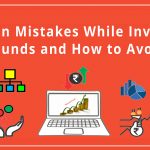There are plenty of mutual funds available in India, but picking the right one for you is challenging for a novice. There are various factors while choosing the best mutual fund for everyone. These factors include investors’ risk profile, investment horizon, return on investment, the minimum required money, etc. There are many investors who tend to look at the return percentage of the fund only, whereas there are other things to worry about while choosing a mutual fund. We will discuss the selection of the right mutual fund with consideration to different goals of an investor and other basic requirements.
Criteria For Picking Right Mutual Funds
Expense Ratio: Annual funds incur expenses to maintain the funds that are known as the expense ratio. The percentage of assets is payable to the fund manager as the annual maintenance fee (AMC). Expense ratios for the small funds are high as the fund has to meet the expenses from small fund assets. And if the net assets of the fund are significant, then the expense ratio comes down. There are mainly three types of expense ratios, such as management fees, administrative costs, and distribution fees.
Taxation: Mutual funds are taxed on the basis of the holding period, which is divided into two types: short term and long term. Investment in equities is considered short term if the holding period is less than one year. In contrast, if the holding period is more than one year, it is called the long term. In the case of debts, the holding period of fewer than 36 months is short term, and above 36 months is considered long term.
Long-term investments incur significantly less tax than short-term investments, so investors are advised to invest for the long term when they opt for investments in mutual fund schemes.
Risks in Mutual fund: There are mainly five types of risks involved in mutual funds, e.g., market risk, concentration risk, interest rate risk, liquidity risk, and credit risk. Let’s discuss them all in brief.
Market Risk: This type of risk is associated with the performance of the stock market. If the market is not performing well for any reason, it will hamper the performance of your fund.
Concentration Risk: Concentration risk is investing your money in one particular type of fund instead of diversifying your portfolio. The more diverse your portfolio is, the less risky it is as it avoids the sector related hurdles.
Interest Rate Risk: Interest is the tool to control money flow in the market. If the interest rises, then it impacts the market negatively. Interest rate increment during the particular investment period may drag the price of the security down.
Liquidity Risk: Liquidity means you can redeem your fund without any difficulty and loss in investments’ value. There are some mutual fund schemes that have a certain lock-in period, such as Equity Linked Saving Schemes (ELSS) and Exchange Traded Funds (ETFs).
Returns in Mutual Fund: Mutual fund returns are calculated on the basis of appreciation in the original investments over a particular period of time, which is denoted by net asset value (NAV). NAV at purchase date and selling date difference plays a significant role in the process of return calculation. The appreciation in the capital can be seen in the form of an increment in the NAV. If the NAV has increased from the date you bought the fund, then the net increment is your profit, while if the NAV has declined over that time, then that would be your loss.
Performance of Fund:
There are several ways to check the performance of a mutual fund. Let’s discuss the main factors involved in the process.
- Comparison with the benchmark is the best way to compare your fund’s performance. For example, if you have a large-cap equity fund, you can compare it with Nifty 50.
- The history of the fund is also an excellent way to compare your fund as it gives you an idea of the health of the fund. If the fund has a long history, then you should compare it with different time intervals. This will give you a fair idea of the performance of the fund.
- The fund should have risk-adjusted returns as the higher the risk, the more the profit is expected from the fund. Sharpe ratio is the best way to check the risk-adjusted returns as it would guide you about the fund manager’s capability of delivering higher returns.
Fund Managers:
Fund managers play a vital role in the performance of funds. If a particular fund manager has done great with other funds in the past, then the current funds can also be expected to make a good return from him as he has a good reputation. The fund manager is solely responsible for picking the right stocks for the particular fund. Thus, it is his decisions that can impact the fund. Hence it becomes crucial in choosing the best fund manager among others.
Conclusion: There are various things in a mutual fund that one should know before choosing the right kind of mutual fund for them. We have mentioned necessary aspects to understand before investing in mutual funds, such as expense ratio, taxation, risk, return, fund performance, and fund managers’ performance.
About Author

Stock Trading Now trade in ₹9 Per Order or ₹ 999 Per Month Plans.
Future & Options Access F&O contracts with advanced tools for hedging and speculation.
Currency Trading Trade in major currency pairs and manage forex exposure efficiently.
Commodity Trading Diversify Trading with MCX & NCDEX by Trading in Gold, Silver, Base Metals, Energy, and Agri Products.
Margin Trading Funding Boost your buying power with upto 5X, Buy now Pay Later
Algo Trading Back test, Paper Trade your logic & Automate your strategies with low-latency APIs.
Trading View Leverage Trading View charts and indicators integrated into your trading platform.
Advanced Options Trading Execute multi-leg option strategies with precision and insights.
Stock Lending & Borrowing Earn passive income by lending stocks securely through SLB.
Foreign Portfolio Investment Enable NRIs and FPIs to invest in Indian markets with ease and compliance.
IPO Invest in upcoming IPOs online with real-time tracking and instant allotment updates.
Direct Mutual Funds 0% Commissions by investing in more than +3500 Direct Mutual Fund Scheme.
Corporate FDRs Earn fixed returns with low-risk investments in high-rated corporate fixed deposits.
Stocks SIPs Build long-term wealth with systematic investment plans in top-performing stocks.
Bonds & NCDs Access secure, fixed-income investments through government and corporate bond offerings.
Depository Services Safely hold and manage your securities with seamless Demat and DP services with CDSL.
Insurance One-Stop Destination For All Your Insurance Needs. Compare Quotes from Top Insurers & save bigs.
Journey Tracing our growth and milestones over time.
Mission & Vision Guided by purpose, driven by long-term vision.
Why RMoney Platform Smart, reliable platform for all investors' needs.
Management Experienced leadership driving strategic financial excellence.
Credentials Certified expertise with trusted industry recognition.
Press Release Latest company news, updates, and announcements.
Testimonials Real client stories sharing their success journeys.
7 Reasons to Invest Top benefits that make investing with us smart.
SEBI Registered Research Trusted insights backed by SEBI-compliant research.
Our Technology Advanced tools enabling efficient online trading.
Calculators Access a suite of smart tools to plan trades, margins, and returns effectively.
Margin Calculator Instantly check margin requirements for intraday and delivery trades.
MTF Calculator Calculate MTF funding cost upfront to ensure full transparency before placing a trade.
Brokerage Calculator Know your exact brokerage charges before placing any trade.
Market Place Explore curated investment products and trading tools in one convenient hub.
RMoney Gyan Enhance your market knowledge with expert blogs, videos, and tutorials.
Performance Tracker Track our research performance with full transparency using our performance tracker.
Feedback Share your suggestions or concerns to help us improve your experience.
Downloads Access important forms, software, and documents in one place.
Locate Us Find the nearest RMoney branch or service center quickly.
Escalation Matrix Resolve issues faster with our structured support escalation process.
Back Office Log in to view trade reports, ledger, and portfolio statements anytime.
Account Modification Update personal or bank details linked to your trading account.
Fund Transfer Transfer funds instantly online with quick limit updation to your trading account.
Bank Details View our registered bank account details for seamless transactions by NEFT, RTGS or IMPS.
How to Apply IPO Step-by-step guide to apply for IPOs using your trading account.
RMoney Quick Mobile App Trade on-the-go with our all-in-one mobile trading app.
RMoney Quick login Quickly access your trading account through the RMoney Quick web-based trading.
RMoney Rocket Web Version Experience powerful web-based trading with advanced tools for algo traders.
RMoney Rocket Mobile Version Trade anytime, anywhere with our feature-rich mobile trading platform.




















